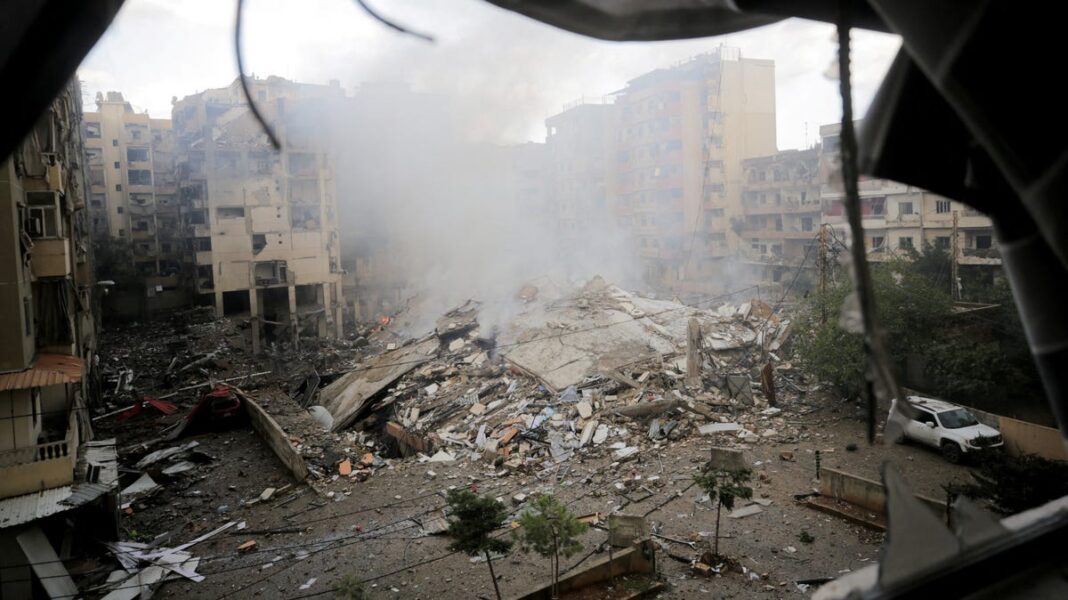Israel initiates limited ground operations in Lebanon targeting Hezbollah
The military announced it has commenced “limited, localized, and targeted ground raids based on accurate intelligence” aimed at Hezbollah in southern Lebanese villages near the border.
This story has been amended with the latest details.
On Tuesday, Israeli forces entered Lebanon to carry out what the IDF described as a “limited, localized, and targeted” ground mission aimed at dismantling Hezbollah’s command networks and arms depots.
This move comes after nearly a year of consistent missile strikes launched by Hezbollah against northern Israel, which escalated following the surprise attacks by Hamas on October 7, 2023.
For the past year, Israel has attacked Hezbollah positions in Lebanon in retaliation. The current ground incursion follows the detonation of explosives disguised as communications devices used by Hezbollah members, two weeks of airstrikes in Lebanon that led to over 1,000 casualties, and the killing of Hezbollah’s leader Hassan Nasrallah.
Israel asserts that this latest offensive aims to ensure the safety of approximately 60,000 displaced residents in its northern regions so they can return home. However, it also signifies a marked intensification of the ongoing conflict in the Middle East between Israel and various Iran-backed factions, such as Hezbollah in Lebanon, the Houthi rebels in Yemen, and multiple militias in Iraq. These groups have aligned with Hamas since its attacks last year, which resulted in 1,200 deaths and around 250 hostages taken back to Gaza.
The specifics of what constitutes a “limited, localized, and targeted” invasion remain unclear. Israel maintains that Hezbollah operates an extensive network of tunnels and arms depots in southern Lebanon.
Established in 1982 with Iranian support, Hezbollah was created to challenge Israel, Iran’s adversary. It is often described as a quasi-state in Lebanon, with a well-armed militia that holds political sway in the Lebanese parliament and is viewed positively by many as a social movement.
Nevertheless, Lebanon has historically remained on the periphery of major conflicts with Israel. This was the case in 2006 during Israel’s last significant war against Hezbollah and in 1982, when Israel invaded Lebanon to confront the Palestinian Liberation Organization, which has since transitioned into the Fatah political faction that retains limited authority over parts of the West Bank.
According to Lebanon’s Prime Minister Najib Makati, the country is experiencing “one of its most perilous times.” He noted that around one million people have been displaced since Israel’s aggression began last month. In Gaza, where Israel launched a substantial offensive against Hamas following the October 7 attacks, a vast majority of the population of 2.3 million has also been forced to leave their homes. The Gaza Health Ministry reports over 41,300 Palestinian fatalities.
The White House and the U.S. State Department have yet to respond to inquiries about Israel’s ground incursions in Lebanon, but President Joe Biden called for a cease-fire on Monday.
“I’m more concerned than you might realize, and I feel they should halt their operations,” Biden stated when asked about Israeli actions across the border. “A cease-fire should be enacted now.”
Biden also announced that the U.S. would deploy “a few thousand” additional troops to the region designed to enhance the security of the 40,000 American service members already stationed in the area and assist in supporting Israel’s defense.
Last week, Israel dismissed a U.S. and French proposal for a 21-day cease-fire along the Lebanon border, aimed at facilitating a diplomatic resolution that would enable both sides’ displaced civilians to return home.

